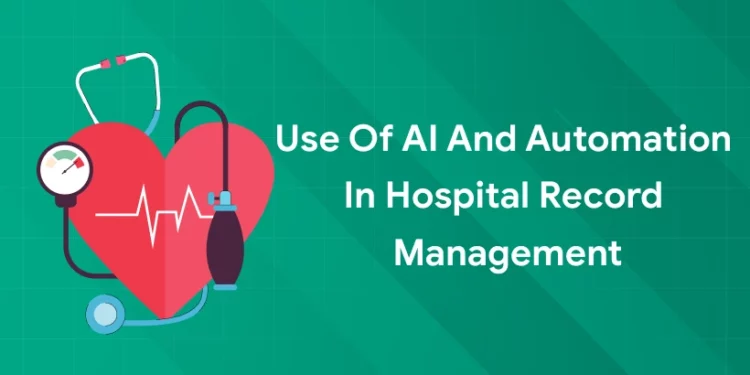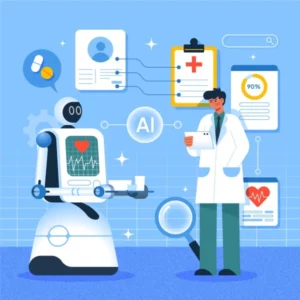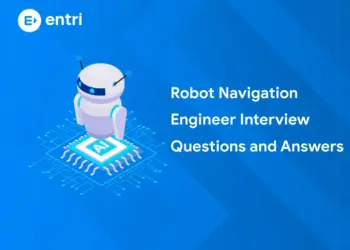Table of Contents
Key Takeaways:
- AI and automation drastically reduce errors and inefficiencies in hospital record management.
- Real-time analytics and clinical decision support improve patient outcomes.
- Automation streamlines workflows, cuts costs, and enhances staff productivity.
- Data security and staff training are critical for successful implementation.
- The future of hospital records lies in predictive analytics, NLP, and blockchain.
Introduction: The Human Side of Hospital Records
Every hospital is a hub of stories—stories of healing, hope, and sometimes, frustration. Behind every patient’s journey, there’s a mountain of paperwork, fragmented records, and hours of manual data entry. For healthcare professionals, this often means less time at the bedside and more time buried in administrative tasks. In 2026, AI and automation are changing this narrative. These technologies are not just streamlining hospital record management—they’re transforming the way care is delivered, making it faster, safer, and more compassionate.
The impact goes beyond numbers and statistics. AI-powered solutions are giving doctors and nurses more time to connect with patients, reducing burnout, and ensuring that every record is accurate and accessible. This shift is not just about efficiency; it’s about restoring the human touch to healthcare.
The Role of AI and Automation in Hospital Record Management
1: What is the primary role of a hospital administrator?
AI and automation are revolutionizing hospital record management by handling the repetitive, time-consuming tasks that have long plagued healthcare systems. From data entry to error detection, these technologies are making record-keeping faster, more accurate, and more secure. AI-powered systems can scan, extract, and input patient data from various sources, while automation tools streamline workflows and reduce administrative burdens. This allows healthcare professionals to focus on patient care, rather than paperwork.
You might also like: What is the Medical Records Department in a Hospital?
Hospital Administration Course with Assured Career Growth
Hospital Administration Course by Entri App: Master essential healthcare management skills, gain certification, and secure top roles in leading hospitals
Join Now!Key Applications of AI in Hospital Record Management
-
Automated Data Entry and Validation
AI systems are now capable of scanning and extracting patient data from paper forms, digital files, and even voice recordings. These systems automatically validate entries, flagging inconsistencies or missing information. This reduces manual errors, speeds up record updates, and ensures compliance with regulatory standards. For example, hospitals using AI-powered data entry tools have reported a significant reduction in data entry errors and a faster turnaround time for record updates.[1]
-
Speech-to-Text and Ambient Documentation
Ambient AI tools, such as Microsoft’s Dragon Copilot and Nuance DAX, listen to clinical conversations and generate structured medical notes in real time. These tools transcribe doctor-patient interactions, draft visit summaries, and update electronic health records (EHRs) automatically. Studies have shown that AI scribes can cut note-taking time by up to 20% and reduce after-hours documentation by 30%, freeing up valuable time for healthcare professionals.
Read in detail: What are Electronic Medical Records?
-
Error Detection and Alerts
AI algorithms continuously monitor patient records for errors, inconsistencies, or inappropriate treatment suggestions. Automated alerts notify staff of potential medication errors, missing data, or unusual patterns, helping to prevent adverse events and improve patient safety. For instance, AI-powered error detection systems have been shown to flag potential medication errors and inconsistencies in medical records, reducing the risk of medical errors.
-
Centralized and Integrated Records
AI enables the centralization of patient records, integrating data from labs, pharmacies, billing, and diagnostic departments. This ensures that all healthcare providers have access to comprehensive, up-to-date information, improving continuity of care and reducing fragmentation. Centralized records also make it easier to track patient outcomes and compliance with regulatory standards.
Automation in Hospital Workflows
-
Appointment Scheduling and Patient Communication
AI-powered systems automate appointment booking, reminders, and follow-ups. Chatbots and automated messaging platforms handle patient inquiries, reducing the workload on administrative staff and improving patient engagement. For example, hospitals using AI-based scheduling tools have seen a 20% decrease in no-shows and a significant increase in appointment efficiency.[2]
-
Billing and Insurance Processing
Automated billing and insurance claim systems detect errors, verify coverage in real time, and accelerate claim approvals. This not only reduces revenue leaks but also minimizes delays and confusion for patients. AI-driven billing systems have been shown to reduce administrative costs by up to 20% and improve the accuracy of claims processing.
Also read: What is a Hospital Information System?
-
Resource Allocation and Staff Scheduling
AI optimizes staff schedules and resource allocation based on patient flow and demand. Predictive analytics help hospitals anticipate peak times and allocate resources accordingly, improving efficiency and patient satisfaction. For instance, AI-based predictive scheduling tools have helped hospitals reduce emergency department boarding times and increase bed occupancy efficiency.
Benefits of AI and Automation in Hospital Record Management
| Benefit | Description |
|---|---|
| Improved Accuracy | Reduces human error and data duplication, ensuring reliable records. |
| Enhanced Efficiency | Speeds up record retrieval, updates, and administrative tasks. |
| Better Compliance | Ensures adherence to privacy and regulatory standards. |
| Improved Patient Outcomes | Real-time analytics and clinical decision support enhance care quality. |
| Cost Savings | Cuts administrative costs by up to 20% and reduces errors that lead to costly mistakes. |
Also read: Types of Medical Records and Their Uses
Hospital Administration Course with Assured Career Growth
Hospital Administration Course by Entri App: Master essential healthcare management skills, gain certification, and secure top roles in leading hospitals
Join Now!Challenges and Considerations
While AI and automation offer significant advantages, hospitals must address several challenges to ensure successful implementation.
-
Data Security and Privacy
Ensuring patient data privacy and compliance with regulations like HIPAA is paramount. AI systems must incorporate robust encryption and access controls to protect sensitive information. Hospitals must also implement strict privacy policies and regularly audit their systems to ensure compliance.
-
Integration with Existing Systems
Integrating AI tools with legacy hospital management systems can be complex. Hospitals need to invest in modern EHR platforms with robust API capabilities to facilitate seamless integration. This ensures that AI-powered solutions can work alongside existing workflows and systems.
-
Staff Training and Adoption
Effective training programs are essential to help staff adapt to new technologies. Hospitals should provide ongoing support and education to ensure smooth adoption and maximize the benefits of AI and automation. Staff training should focus on both technical skills and best practices for using AI-powered tools.
You might also like: Duties and Responsibilities of a Medical Records Manager
Future Trends in AI and Hospital Record Management
The future of hospital record management is rapidly evolving, driven by cutting-edge AI technologies and innovations. As healthcare systems continue to digitize, the integration of AI is paving the way for smarter, more efficient, and patient-centric care. Here are the most significant trends shaping the future of AI in hospital record management:
-
Predictive Analytics and Early Intervention
AI-powered predictive analytics are set to become a cornerstone of hospital record management. By analyzing vast amounts of patient data, machine learning models can identify patterns and predict potential health risks before they escalate. For example, predictive tools can forecast the likelihood of hospital readmissions, chronic disease progression, or complications from surgeries. These insights allow healthcare providers to intervene early, improving patient outcomes and reducing hospital costs.
-
Natural Language Processing (NLP) and Generative AI
Natural Language Processing (NLP) is revolutionizing how clinical documentation is created and managed. AI tools can now listen to doctor-patient conversations, transcribe notes, and generate structured medical summaries automatically. Generative AI is taking this a step further by writing clinical notes, summarizing patient histories, and even generating reports in seconds. This not only saves time for healthcare professionals but also ensures that records are comprehensive and up-to-date.
-
Blockchain for Secure Data Sharing
Blockchain technology is emerging as a solution for secure and transparent data sharing in hospital record management. By creating tamper-proof, decentralized records, blockchain ensures that patient data remains secure and accessible to authorized parties. This is particularly valuable for sharing records across different healthcare providers, insurance companies, and patients, reducing the risk of data breaches and ensuring data integrity.
-
Interoperability and Seamless Data Exchange
Interoperability is becoming a critical focus for hospital record management. Standards like FHIR (Fast Healthcare Interoperability Resources) and HL7 are enabling seamless data exchange between different healthcare systems and EHR platforms. This means that patient records can be accessed and updated in real time, regardless of the system being used. Interoperability not only improves care coordination but also reduces medical errors and enhances patient safety.
Also read: Six Sigma in Healthcare: Concepts and Benefits
-
Cloud-Based EHR Systems
Cloud-based Electronic Health Record (EHR) systems are gaining traction due to their scalability, accessibility, and cost-effectiveness. These systems allow healthcare providers to access patient records from anywhere, at any time, and on any device. Cloud-based EHRs also support advanced analytics and AI applications, enabling real-time decision-making and personalized care.
-
AI-Driven Clinical Decision Support
AI-powered clinical decision support systems are becoming more sophisticated, providing healthcare professionals with evidence-based recommendations and treatment options. These systems analyze patient data, medical literature, and clinical guidelines to offer real-time insights, improving diagnosis accuracy and treatment planning efficiency.
Also read: EMR vs EHR vs HMS
-
Metaverse and Immersive Health Records
The concept of the metaverse is beginning to influence hospital record management. In the future, healthcare providers may access patient records in immersive, three-dimensional environments, allowing for a more intuitive and collaborative approach to care. This could enhance understanding of complex medical conditions and improve collaboration among healthcare teams.
-
Sustainability and Green Data Centers
Sustainability is becoming a priority in healthcare technology. Cloud-based EHRs and green data centers are reducing the environmental impact of hospital record management by minimizing paper usage, energy consumption, and hardware requirements. This not only lowers operational costs but also supports the industry’s commitment to environmental responsibility.
-
AI Doctors and Assistants
AI doctors and assistants are expected to become more prevalent, offering real-time assessment of digital health records, proposing therapies, and anticipating potential dangers. These AI tools will be embedded in EHR software, resulting in quicker, more intelligent record management and enhanced patient care.
These trends are set to transform hospital record management, making it more efficient, secure, and patient-focused. As AI continues to evolve, hospitals that embrace these innovations will be well-positioned to deliver high-quality, personalized care in the years to come.
Master Hospital Record Management with Entri’s Hospital Administration Course
Ready to take your career to the next level? Entri’s Hospital Administration Course in Kerala is your gateway to mastering medical records and leveraging AI in healthcare. This comprehensive course covers:
- Digital record management and automation tools
- AI applications in clinical decision support and patient care
- Regulatory compliance and data security
- Hands-on training with real-world hospital scenarios
Why Choose Entri?
- Expert-led modules designed for healthcare professionals
- Placement assistance to help you land your dream job
- Up-to-date curriculum that includes the latest trends in AI and automation
Enroll today and become a leader in the future of hospital administration. Visit Entri’s Hospital Administration Course to learn more and take the first step toward a rewarding career in healthcare management.
Conclusion
AI and automation are not just buzzwords—they’re revolutionizing hospital record management. By embracing these technologies, hospitals can deliver safer, more efficient, and more compassionate care. As healthcare continues to evolve, those who master AI-powered record management will lead the way in shaping the future of medicine.
Hospital Administration Course with Assured Career Growth
Hospital Administration Course by Entri App: Master essential healthcare management skills, gain certification, and secure top roles in leading hospitals
Join Now!Frequently Asked Questions
What is the role of AI in electronic health records (EHRs)?
AI manages, analyzes, and secures EHRs by automating data entry, detecting errors, and providing clinical decision support.
How does automation reduce hospital costs?
Automation cuts administrative expenses by up to 20% and reduces errors that lead to costly mistakes.
Can AI improve patient privacy?
Yes, AI enhances security through advanced encryption and access controls, but hospitals must implement robust privacy policies.
Is AI replacing hospital staff?
No. AI handles repetitive tasks, freeing staff to focus on patient care and complex decision-making.
What skills are needed to work with AI in hospital records?
Knowledge of healthcare data management, digital tools, and basic AI concepts is essential for modern hospital administrators.















